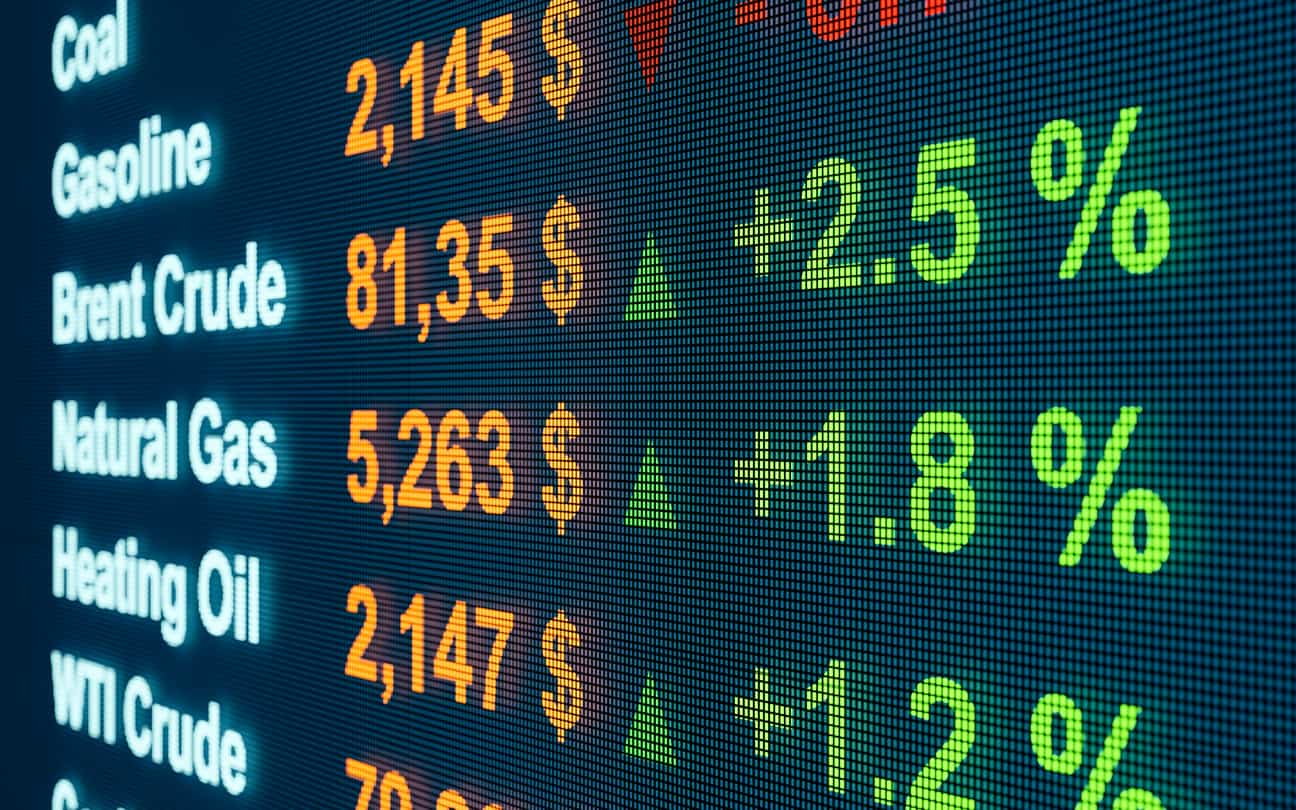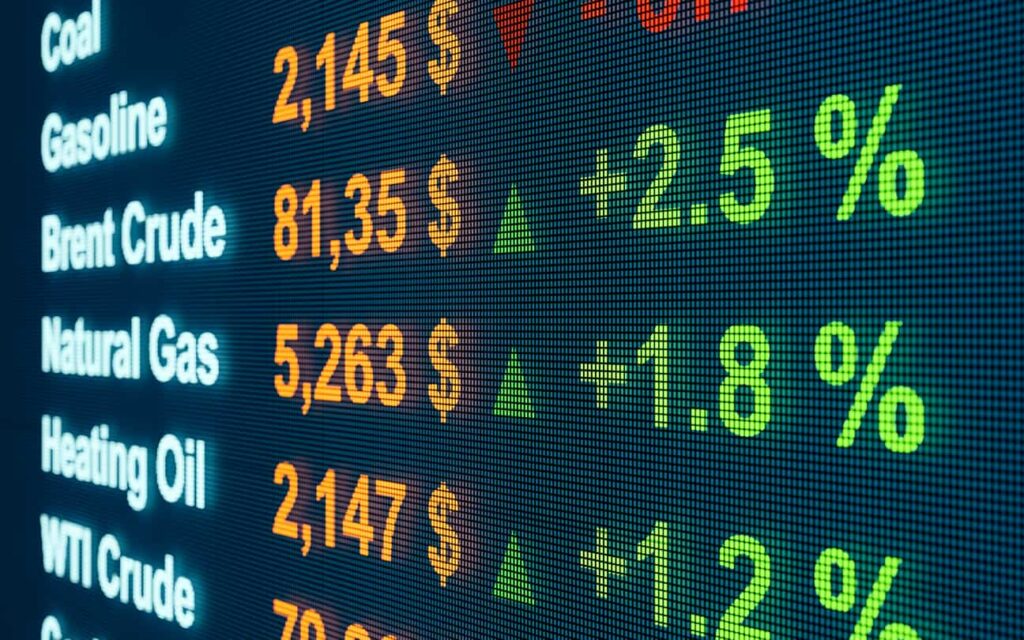

Commodities have historically played a significant role in the development of the global economy. From the early days of trade, commodities such as gold, silver, and precious stones were used as currency and have served as valuable assets for individuals and nations.
Commodities are everywhere, from your morning coffee to the fuel you put in your car.
Whether you are an experienced trader or new to the world of investing, understanding the basics of commodities and how to invest in them will give you a greater appreciation of their importance in the financial marketplace.
Commodity futures trading in the Western world began towards the mid-1800s in the US. However, it might come as a complete surprise to many to learn that the origin of futures trading dates back to 17th-century Japan.
But what is a commodity exactly?
This article aims to answer this question and provide you with a comprehensive overview of the commodity market, including the types of commodities, factors affecting their prices, and how commodities are traded.
What is a Commodity in Economics?
The word commodity refers to a basic good or a raw material that can be exchanged with similar goods. Commodities are primarily used to produce various other goods. For example, a raw commodity such as crude oil is the crucial ingredient in the production of petrol, diesel and heating oil and many other products.
Once a raw material has been converted into something we use as consumers, whether it be food or energy etc., it becomes a product.
Commodities, therefore, play an integral part in global export and import and significantly impact various countries’ economies.
In the world of trading, there are commodity derivatives, which are financial instruments that give investors exposure to trading commodities without having to own them.
Types of Commodities
Commodities can be broadly classified into four types:
- Energy commodities such as crude oil, natural gas, coal etc. These commodities are essential for transport and to power our homes and businesses. Energy prices can be highly volatile and react to geopolitical events and extreme weather around the world.
- Metal commodities include precious metals like gold and silver, as well as industrial metals, iron ore and copper. Gold is regarded as a safe haven investment during times of economic uncertainty. Industrial metals are vital for use in the construction and manufacturing industries.
- Livestock commodities include cattle, pork, and poultry. Droughts, disease outbreaks, and international trade disputes can impact the prices of these meats. Livestock producers closely watch commodity markets to manage risks associated with volatile prices.
- Agricultural commodities include corn, wheat, soybeans, cotton etc. Weather conditions can significantly affect agricultural commodity prices, as can crop diseases that reduce supply.
The availability and abundance of the above commodities vary from country to country. Some countries have vast reserves of oil, gas, minerals, or fertile land for agriculture, while others might have limited resources or none.
That impacts trade as countries with abundant resources can export them and generate significant income. In contrast, countries with fewer commodities must import these goods and rely on other industries for economic growth.
How Are Commodities Traded?
Commodities are primarily traded in two ways: on exchanges via derivatives and on spot markets.
Exchanges are centralised places where buyers and sellers trade commodities through the use of futures and options contracts. Buyers and sellers agree on the price and delivery date of the commodity, and the exchange acts as a mediator, ensuring that both parties adhere to the terms of the contract.
Some of the most well-known commodity exchanges are the New York Mercantile Exchange (NYMEX), the Chicago Mercantile Exchange (CME), and the Intercontinental Exchange (ICE).
On the other hand, spot markets are where commodities are bought and sold for immediate delivery. In these markets, prices are determined by supply and demand, and transactions are usually conducted over the counter (OTC) rather than through a central exchange.
Although these are the two primary ways that commodities are traded, investors can also gain exposure to commodities via stocks by investing in companies that deal with commodities – for example, a gold mining company.
Exchange-traded funds (ETFs) are also a popular way to gain exposure to commodities and commodity indexes.
Finally, some forex brokers also offer a wide selection of commodities that can be traded via their online platforms.
How Are Commodity Prices Determined?
Commodity prices can be determined and influenced by several factors, including supply and demand, production costs, extreme weather, and global economic conditions.
Supply and demand are the most influential drivers of commodity prices. Prices will increase if there is high demand for a commodity but limited supply. Likewise, prices will fall if there is plenty of supply but weak demand.
For example, during periods of strong economic growth, demand for commodities typically increases, which can lead to higher commodity prices.
Production costs also play a role in determining commodity prices. If it costs more to produce a commodity than the market is willing to pay, producers will be forced to sell at a loss or stop producing altogether. This can lead to higher prices for consumers as producers try to recoup their losses.
Extreme weather conditions such as droughts and floods can also significantly impact the production and supply of certain commodities, leading to sudden price changes.
Finally, global economic conditions can affect commodity prices. For example, a recession in Europe or the United States would lead to reduced demand for commodities and lower prices. Conversely, strong economic growth in Asia, for example, can boost demand for commodities and push prices higher.
Related Articles
Conclusion
In summary, commodities are raw materials used in the production of goods and services. Moreover, they play a crucial role in global trade and the financial markets.
Commodities are traded on exchanges all around the world, including the Chicago Mercantile Exchange (CME), the New York Mercantile Exchange (NYMEX), and the Intercontinental Exchange (ICE), among others.
The trading of commodities is essential for producers, consumers, and investors as it provides a way to manage the risk associated with price movements, lock in prices for future delivery and speculate on future price movements.
By understanding the importance of commodities, traders can make informed investment decisions and potentially benefit from the changes in commodity prices.
Forextraders' Broker of the Month
BlackBull Markets is a reliable and well-respected trading platform that provides its customers with high-quality access to a wide range of asset groups. The broker is headquartered in New Zealand which explains why it has flown under the radar for a few years but it is a great broker that is now building a global following. The BlackBull Markets site is intuitive and easy to use, making it an ideal choice for beginners.
